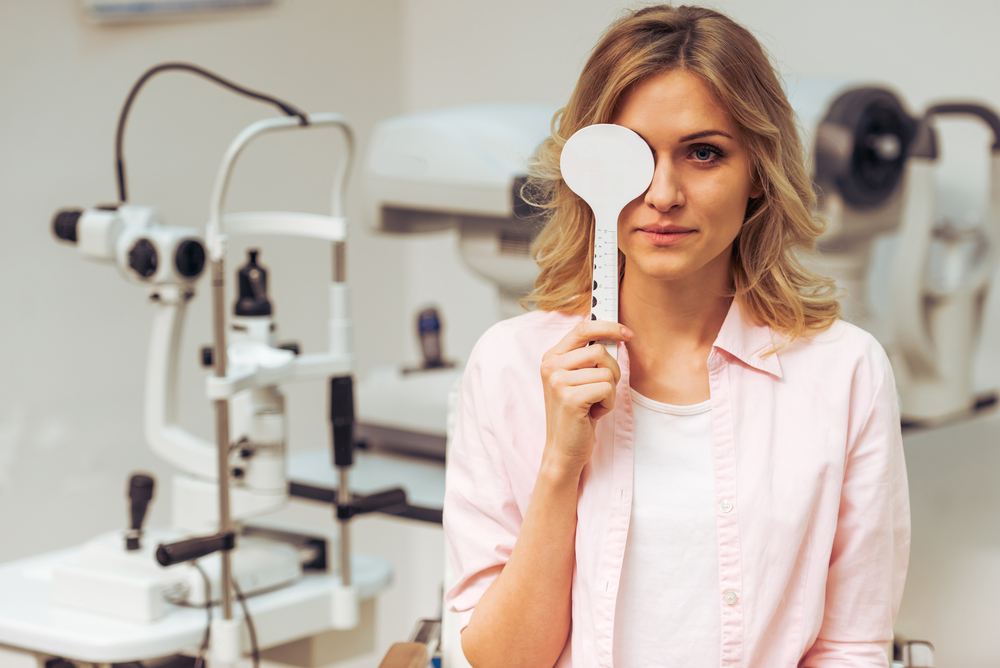
Clear vision is essential for daily life. Many people consider having 20/20 vision the standard for optimal visual acuity. However, 20/20 vision only pertains to the vision sharpness at 20 feet. It is possible to have 20/20 vision yet still experience difficulty with other essential vision skills. These include peripheral awareness, depth perception, and focusing ability.
A comprehensive eye exam by an eye doctor can help determine the specific factors affecting your vision. That will provide appropriate treatment options such as glasses, contact lenses, or a vision therapy program. Sometimes, an underlying eye disease may be the cause of reduced vision. In this case, ocular medication or other treatments may be necessary.
What Is a Visual Acuity Test?
A visual acuity test is a technique used to assess vision clarity. Visual acuity is the potential to see clearly, measured through various tests. One of these is the standard wall chart of letters or symbols often used during an eye exam. These tests are quick and efficient and are the best way for an eye care professional to detect changes in one's vision.
The results of a visual acuity test may lead to a new prescription for eyeglasses or contact lenses. It may also lead to an adjustment to an existing prescription. It is best to schedule an eye exam as soon as you notice any changes in your vision. That is because worsening vision could be an early sign of various eye conditions.
Why Visual Acuity Matters
· Safety
Both at home and work, having good visual acuity is crucial for keeping everyone safe. It allows you to recognize potential dangers, like steps or uneven pavement, and take quick action to avoid them. Additionally, it is crucial for driving because it lets you see other vehicles and pedestrians on the road and read traffic signals and road signs.
· Quality of Life
Maintaining good visual acuity is essential for good quality of life. It enables you to engage in interests and pastimes like reading, playing sports, and watching films. Poor visual acuity can make engaging in these activities difficult, causing social isolation and a lack of enjoyment in life.
· Learning and Education
The ability to see is essential for learning and education. Kids with poor visual acuity may find it challenging to read their textbooks or see the board in class. That can make it hard for them to keep up with their peers. Similarly, adults with poor vision may find reading or finishing work-related tasks difficult.
· Early Detection
It is essential to find issues with visual acuity as soon as possible to stop the problem from worsening. Visual acuity changes are identifiable during routine eye exams, allowing for treatment before they become serious issues. That may also result in the early detection of other conditions affecting the eyes, including glaucoma, cataracts, and diabetic retinopathy.
· Overall Eye Health
Visual acuity is just one aspect of overall eye health. Other critical vision skills can contribute to your overall visual ability. These include peripheral awareness, eye coordination, depth perception, and color vision. A comprehensive eye exam can assess all these factors and provide a complete picture of your eye health.
Conclusion
Visual acuity is essential because it affects your quality of life, safety, education, and overall eye health. It is best to have regular eye exams to identify changes in visual acuity and address them before they become serious issues. You can maintain a high standard of living and continue to take pleasure in the world around you by taking care of your visual acuity.
For more on visual acuity and why it matters, call Clarity Vision in Williamston at (252) 792-2250.
















